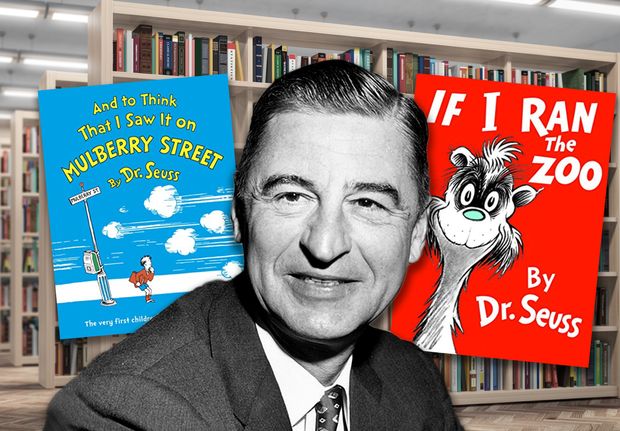Dr. Seuss Books Pulled for Racist Imagery
March 20, 2021
Random House Children’s Books, the publisher that preserves and protects the Dr.Seuss’ legacy, issued a statement that six Dr. Seuss books will stop being published because of racist and insensitive imagery.
These books include “And to Think That I Saw It on Mulberry Street,” “If I Ran the Zoo,” “McElligot’s Pool,” “On Beyond Zebra!,” “Scrambled Eggs Super!,” and “The Cat’s Quizzer.”
In a statement, Dr. Seuss Enterprises said it made its decision after consulting educators and reviewing its catalog.
“Ceasing sales of these books is only part of our commitment and our broader plan to ensure Dr. Seuss Enterprises’s catalog represents and supports all communities and families,” it said. They further tell that “These books portray people in ways that are hurtful and wrong.”
In “And to Think That I Saw It on Mulberry Street,” an Asian person is portrayed wearing a conical hat, holding chopsticks, and eating from a bowl. “If I Ran the Zoo” includes a drawing of two bare-footed African men wearing what appear to be grass skirts with their hair tied above their heads.
“McElligot’s Pool” uses the word “Eskimo” in one instance as an adjective describing a fish that might swim from the North Pole to McElligot’s Pool. Some have deemed the term “Eskimo” as offensive in Canadian English. “On Beyond Zebra!” depicts “Nazim of Bazzim,” a figure of unspecified nationality (however speculated to be Arab) riding a camel-like creature called a “Spazzim.” This appropriation of their culture has been declared highly offensive by the Arab community.
“Scrambled Eggs Super!” includes a scene that has been perceived as hurtful. It depicted a group of people from a fictional location near the Arctic wearing clothing resembling that worn by Inuit people. Finally, “The Cat’s Quizzer” includes an incredibly racist illustration of a yellow figure in a conical hat with the caption, “How old do you have to be to be a Japanese?”
Books by Dr. Seuss — born Theodor Seuss Geisel in Springfield, Massachusetts, on March 2, 1904 —- have been translated into dozens of languages as well as in braille and are sold in more than 100 countries. He died in 1991.
Dr. Seuss’s works remain popular, earning an estimated $33 million before taxes in 2020, up from just $9.5 million five years ago, the company said. Forbes listed him second on their list of highest-paid dead celebrities of 2020, behind only the late pop star Michael Jackson.
Within hours of the discontinuation announcement, Dr. Seuss’s books filled more than half of the top 20 slots on Amazon.com’s bestseller list. “Mulberry Street” and “If I Ran the Zoo” were on the list, along with “Oh, the Places You’ll Go!”, “Green Eggs and Ham,” and others still being published.
When asked about the situation, sophomore Siddhi Jadhav says, “I personally think that these books should remove them because they promote the wrong ideologies in young kids’ minds. Children are like blank slates, so obviously, reading books where certain characters are seen differently influences their thoughts. It is also unfit to have a book that has many different types of stereotypes. Racisms and stereotypes are definitely not something we should be promoting at all.”
In a time of such change, it is important to keep the younger generations educated on racism issues. Dr. Seuss will remain beloved in our minds; however, these books have to go.







